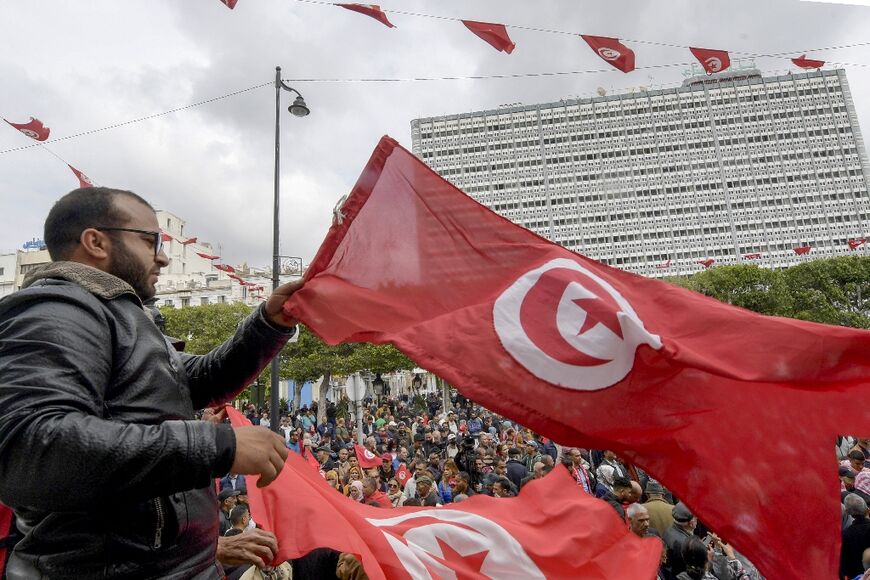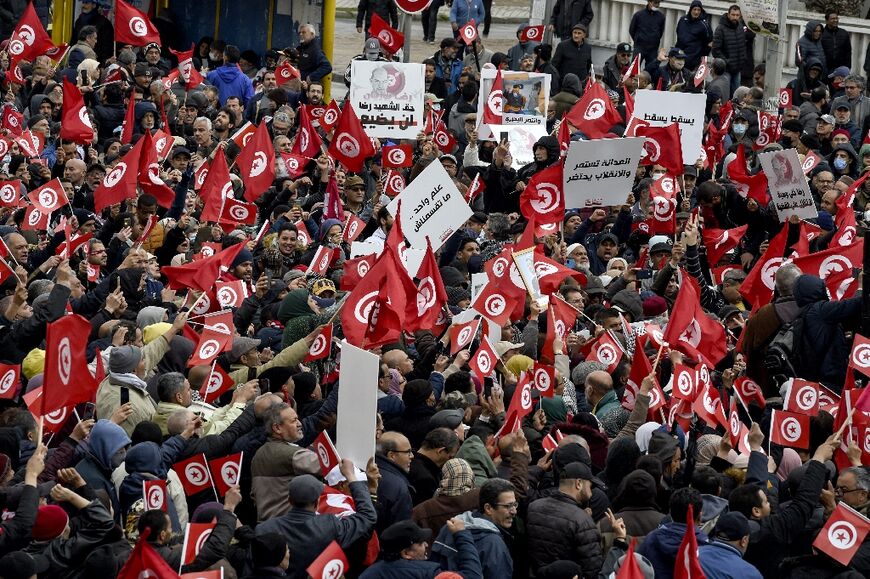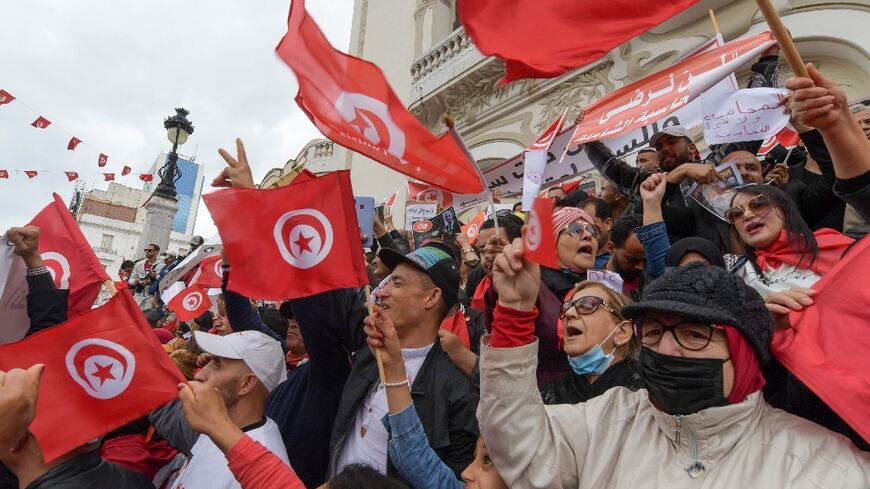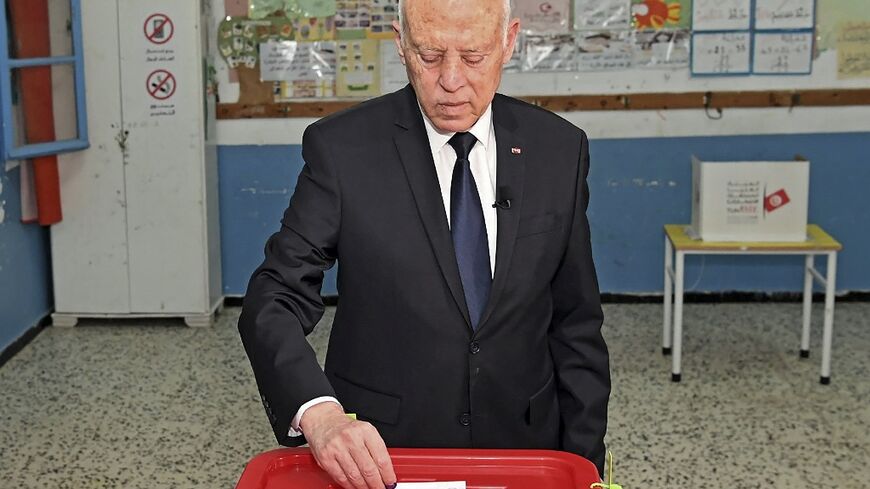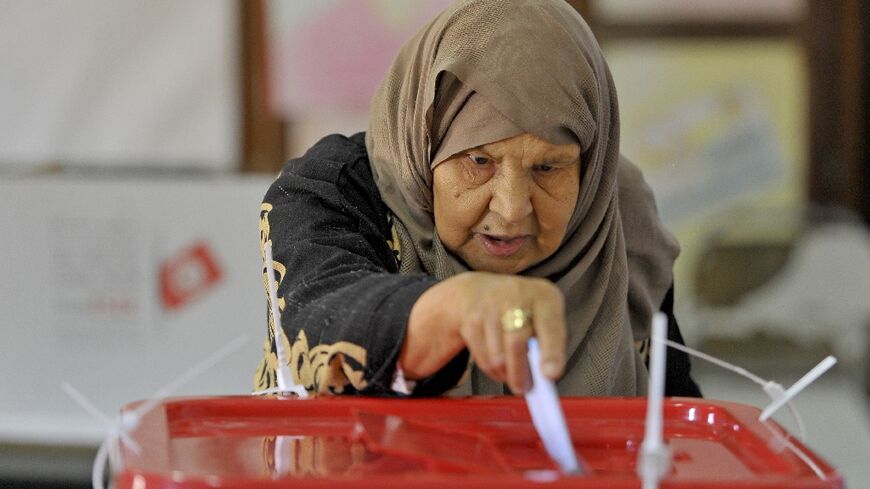Tunisia's Kais Saied: saviour or autocrat-in-waiting
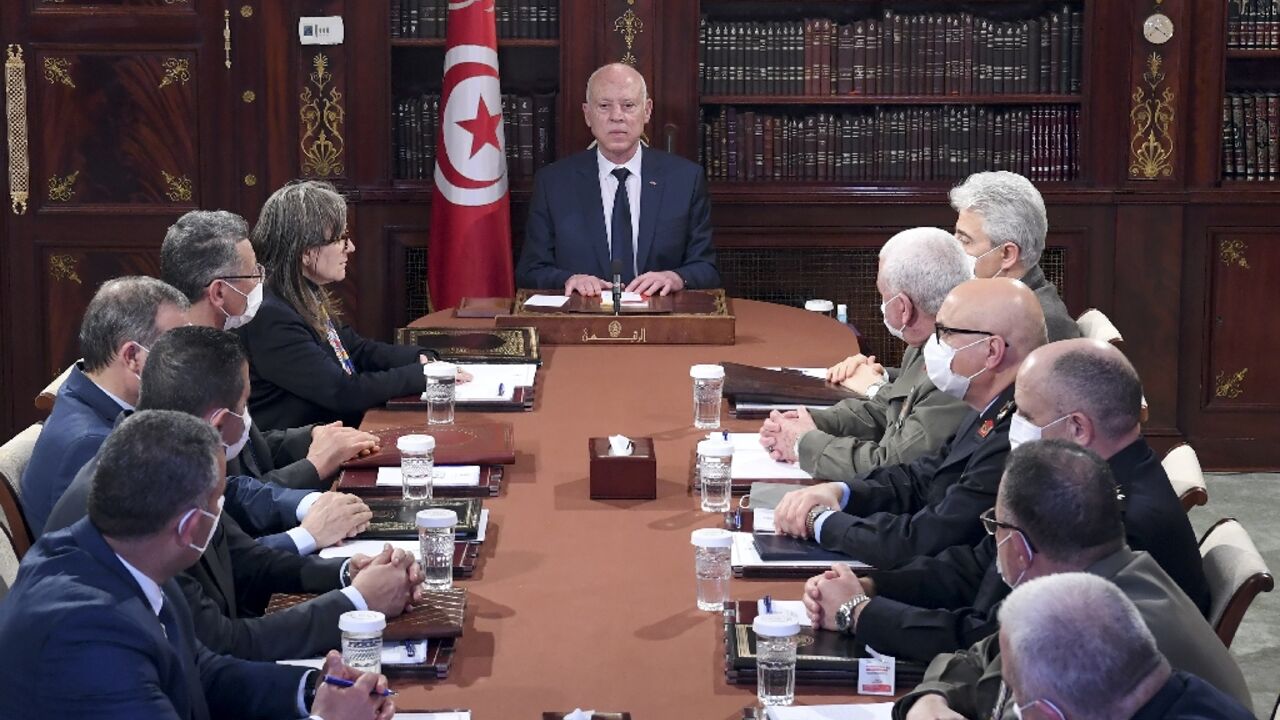
Tunisia's President Kais Saied, who staged a dramatic power grab last year against the country's political elite, is pushing to pass a constitution that would enshrine his one-man rule.
The former law professor and political outsider stood as an independent and won a landslide victory in the North African country's 2019 presidential vote, capitalising on his image as a clean operator in contrast to his graft-tainted rivals.
On July 25 last year, Saied sacked the government and froze parliament, in a move against the democratic but often deadlocked system that had emerged after the country's 2011 revolution.
On Monday, Tunisians will vote in a landmark referendum that could install a vastly different system: one that bears the hallmarks of the 64-year-old's philosophy.
Saied grew up in a middle-class Tunis suburb and became prominent in 2011, appearing on television to discuss constitutional law.
He retired as an academic in 2018, and the following year he ran an unorthodox campaign for the first direct presidential election since the uprising that overthrew dictator Zine El Abidine Ben Ali.
Saied, an enigmatic and austere figure, shunned mass rallies, favouring instead to go door-to-door and canvass for votes.
He built his campaign on the motto "the people want" -- echoing slogans used during the revolution that sparked copycat uprisings across the Middle East and North Africa.
Youssef Seddik, an anthropologist who knew Saied before he was elected, admitted to being "struck by his kindness and the sense he was listening".
That "contrasts today with his stiffness, the rigidity of his speech in classical Arabic", he said.
- 'Brutal' decision-maker -
Last July Saied seized control of the judiciary and dissolved parliament, before laying out his plans to overhaul the political system.
Now he is determined to push through his constitution, which would dilute parliament's role, devolve power to elected regional councils -- and give the president near-unchecked executive authority.
Since last year's power grab Saied has become more isolated, surrounding himself with a tight circle of trusted advisors.
Although his administration was rocked by the departure of top aide Nadia Akacha in January, he has continued to cultivate an image as the man to "rescue" Tunisia from corruption and correct its revolutionary path.
Seddik said the president tended to choose his team "hastily", then when they disappoint him or betray him, he leaves their position vacant or appoints someone "docile and without substance".
"Like all indecisive people, he beats around the bush before making a brutal decision, then never changes his mind" even if it is a mistake, Seddik said.
Saied has no social media account and has not given an interview for a year, limiting his public comments to monologues in videos issued by his office's Facebook page.
Some of these take the form of diatribes in his booming, gravelly voice against foreigners "interfering" in Tunisian affairs, or unnamed domestic foes he describes as "snakes", "germs" and "traitors".
- Playing on anger -
Saied's political project has been compared to the pan-Arabism touted in the 1960s by the likes of Egypt's late president Gamal Abdel Nasser or Libyan dictator Moamer Kadhafi.
French leader Charles de Gaulle's plan for a "new republic" has also been a source of inspiration for Saied.
A conservative on social issues, namely homosexuality, Saied has played on Tunisian anger against politicians, the economic elites and his arch-rival, the Islamist-inspired Ennahdha party.
That has sparked a chord with some Tunisians.
"Lots of young people, the marginalised and excluded, are on his side," said political analyst Hamadi Redissi.
Saied is married to lawyer Ichraf Chbil, and the couple have two daughters and a son.
He enjoys Arabic classical music and calligraphy, often writing official correspondence and decrees by hand.
The premier has a cult-like following online, where supporters run dozens of Facebook pages praising him and denouncing those who criticise his policies.
Saied's constitution would install a form of grassroots democracy he has said would help develop marginalised parts of the country.
But aside from attacks on corrupt businessmen and "speculators", Saied has been quiet on Tunisia's crisis-stricken economy, ravaged by a decade of decay made worse by the coronavirus pandemic and the Ukraine war.
While that has chipped away at his popularity, Saied's rivals have struggled to raise large numbers to protest against him.


